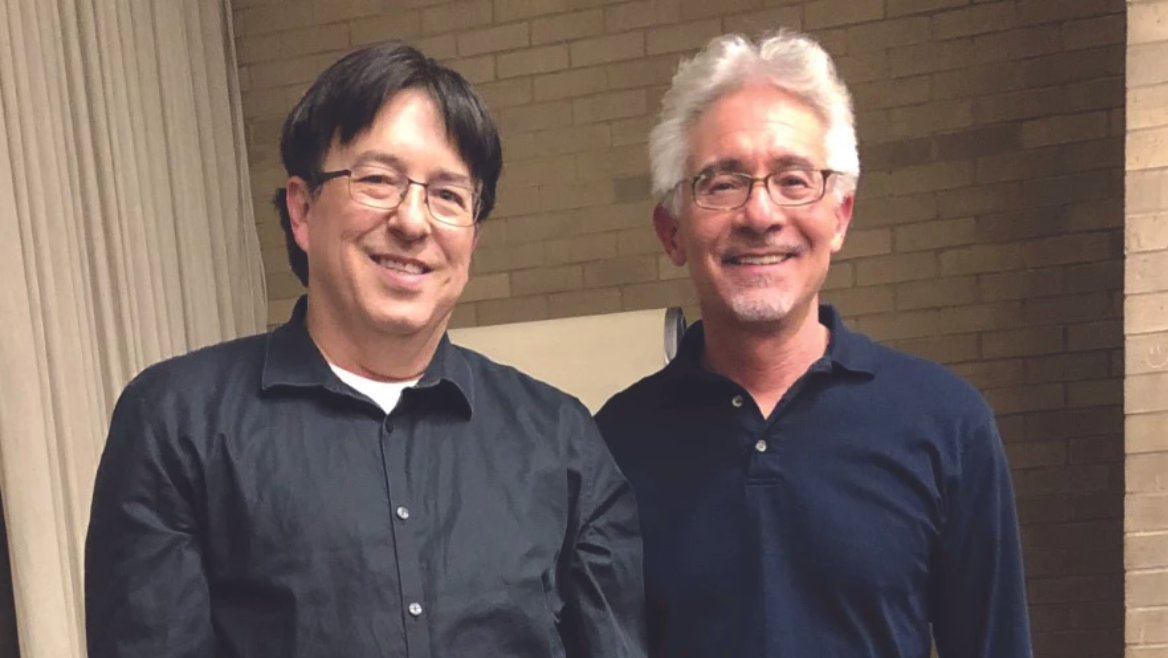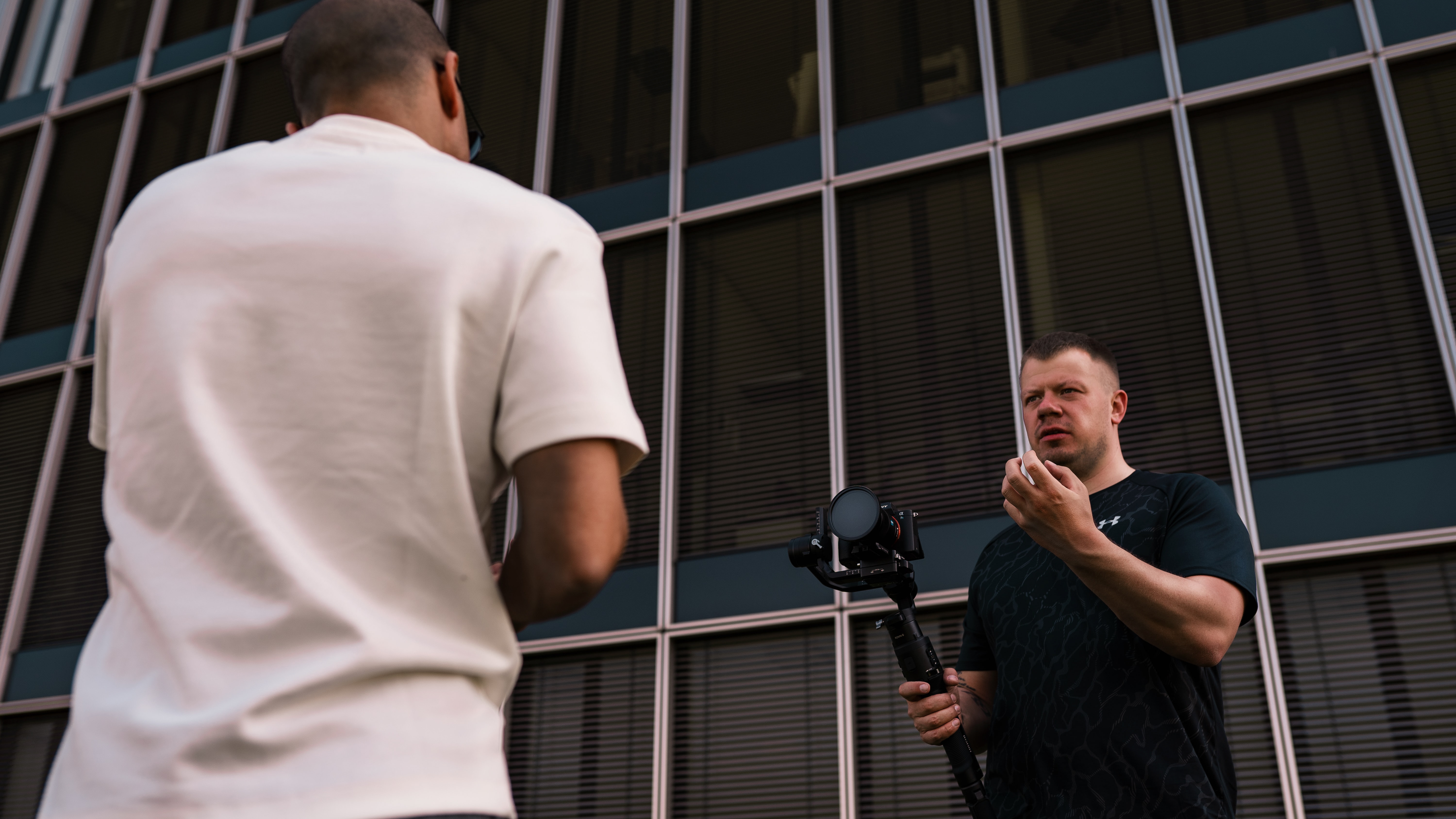SHORT STORIES
CREATIVE WRITING
The Disappeared (set in the Lovecraftian Universe)
My plan was simple: take the 10:00 train out of Kingsport to Arkham, and from there transfer west to the Dunwich countryside.
Some may ask why I would want to seek refuge in the isolated countryside of Massachusetts. Some may even consider me a madman for thinking I could escape the constraints of Kingsport. I have remained here in fear my entire life, and my mind still shudders at the thought of the twentieth century horrors that disturbed this town. Yet, I find myself fixed here, even after my grandfather became one of the disappeared two days ago.
My grandfather and I lived along the edge of the coast for seventeen years, a good mile from the outskirts of the dark city. While I tended to the house, he would visit the city daily, bringing back supplies that two could barely share. The city had become deserted with time, frightening away new travelers with its eerie Medieval landscape and dilapidated state. Each time my grandfather left for Kingsport, my mind drifted to horrible places, and I desperately hoped he would return from the lurking shadows of the desolate city.
Until two days ago, he always did. That pulsating fear has been ingrained in me ever since my parents joined the disappeared a decade before. I knew my mother and father when I was a child, but they ventured too often into the limits of the city, and rarely returned without mad stories of raw insanity–giant shadows that appeared to swallow people in the dark, unearthly claw marks engraved along buildings, and lurid screams of desperation that emitted from some unknown horror. I found that each time they visited, they succumbed further and further to the strange tendencies of the town, becoming almost numb to sensation and sentiment. And since that day in mid-April when they went to investigate the appalling, buzzing noises radiating throughout the city, I have been endlessly awaiting their return.
Kingsport, though, used to be an affluent city, characterized by beautiful Colonial homes and well-kept shrubbery. Legend says the city is home to many ancestral deities that roamed the earth thousands of years before us. My parents, as prominent archaeologists, were awed by the city’s ancient architecture and sought to unveil the archaic, native secrets of the deities that the local legends referenced. They told me stories of when Kingsport was a lively trading post in 1959, and people from all over the region would come to buy our fish. The inhabitants of Kingsport would ritually pray and sing in great ancestral hymns to the god Yibb-Tsll, and in doing so, lived a prosperous life. But with the arrival of the Anglican church in 1964, my grandfather told me, people looked to other, more widely accepted gods. He always believed that this betrayal angered the terrifying Yibb-Tsll and sent our city into the very depths of some devilish cosmos. I myself, did not believe in the fantastical stories of the god, but did find myself horrified by my grandfather’s descriptions of his towering, humanoid body. Indescribable trepidation gripped me as he vividly recounted its cosmic physiognomy and horrendous, dark stature. I was shaken by his stories, and I wondered who would worship such a sinister beast. I always wanted to believe my grandfather’s dementia and age had finally overtaken him when he told me this and that rather Kingsport had become a bleak ghost town with the sudden disappearance of the fish. The sane citizens abiding in the city always said it was the fish that led to the downfall of Kingsport, and I simply chose to accept it as the truth.
Grabbing my meager belongings, I departed from the security of the house. Taking long strides, I moved directly towards the ominous town in the distance, regardless of the disquietude I felt. The wind had picked up, nipping and pulling at the collar of my cotton shirt. The haunting shrieks of the wind sent chills through my body, and I looked ahead, desperate for any scattered evidence of footsteps or life outside the barrier of the abandoned town. But despite my preconceived anxiety, I knew I was alone.
The city was not far now. I could see snowy Kingsport above the hill, with its narrow, crooked streets and winding rows of angled Colonial houses. It was easy to become lost in the disorienting layout. The central Marblehead square was the only form of direction, but few crossed that area of the city after the old Anglican church was built there. The church, notable for its chilling Medieval design of tall black spires, possessed an overhanging second story that seemed to stretch towards the ground, outwardly reaching for some unseen dark world below. I rarely wandered into the city after my parents’ disappearance; the unnerving quiet and threatening looks from the remaining villagers filled my heart with a wretched fear. Kingsport, especially in the winter, was characterized by morbidity. Alone now without a guardian, I could not stay here for I feared I would grow mad from the constant isolation and my mind’s torment. But, the only way out of the town was through it, as deep, reticent forests surrounded its perimeter.
My grandfather also used to tell me rumors of passersby when he returned from the town, of local graveyards filled with fresh bodies. Reports of kidnapped children echoed through the streets. Fillings of strange disappearances coerced people to stay indoors. But what frightened me the most was not the disappearances, but rather the atrocious reports of mangled human bodies. My grandfather told me the holes pierced through their skin were unworldly, cut impeccably and seamlessly through flesh and organs. And even given this, it was not the merciless apertures that weakened my state of consciousness. It was the spine-chilling smiles left on all of the victims’ faces and the bloodless residue the mangled bodies left at the scene. I tried not to surmise that two of these casualties were my parents, but I knew it in my heart to be true.
The road leading into town crossed past the bleak burying-grounds, where ancient gravestones seemed to hover midair in the white landscape. I moved quickly, blocking out thoughts of my parents or grandfather as I passed the dark graveyard. Yet, some distant, unfathomable whisper tickled at the back of my neck, muttering indistinguishable horrors in a dialect I did not comprehend, and I could not help but stop and look behind me. But only the bleak, deserted road remained, stretching down to the edge of the ocean front. Just beyond the graveyard, I saw the inky shadow of Kingsport and the haunting outline of the old church. The elongated second floor now seemed to lean towards me, bidding me welcome into its torturous, alluring arms.
I stumbled forward into the city, and was met with an ancient warren of narrow, dimly-lit streets, crisscrossing in all directions up the hill. Gleaming gambrel roofs and seemingly endless rows of houses met my gaze, and I at once felt overwhelmed by the complex design of the city. Tall, Romanesque architecture defined central Marblehead, along with stretches of beige building walls broken up by mesmerizing tracery. I looked back again briefly, only to find I could no longer see the ocean.
My mind was present again, and I realized that silence gripped the land. The busy villagers I recalled in the streets ten years ago were nowhere to be seen. Even the local shops and stores at the entrance of the town were boarded up with poorly structured wooden blocks. I followed the road through the center of town, hiding cautiously in the extended shadows of the angled buildings. There were no merry sounds from villagers, no songs or chiding of bells played for the coming of winter. Besides the feeble glow of the light posts, the night was swallowed in a stygian dark. I felt petrified by the exposure in this barren tundra, but I carried onward, keeping my head down past the shadowed clay walls.
As I neared the end of Marblehead, a nightmarish howl emitted from the church overhead. My eyes wandered up the shuttered windows with exasperation, looking towards the cracked steeple bell for any sign of movement. My mind began to wander ferociously again, and an unfathomable fear consumed my body. Thoughts of the disappearances and images of mangled bodies flashed across my mind, and I began to jog quickly past the church.
Then suddenly, all thoughts of the beguiling town ceased and I was seized by an inscrutable terror before I could analyze what had actually occurred. A black outline seemed to fly across the second story of the church, and I swore the being possessed barbaric wings of unknown origin. Holding my breath, I molded into the shadow of the building. The creature had passed so briefly, but my mind was imprinted with its human-like head and legs, outstretched by some horridly winged limb connecting the two disparate features. My head now burned with a nightmarish fever, and I felt mad in that I could not discern nor prove what my eyes had just witnessed.
A whisper again sent a familiar chill up my neck, and my hair stood up instinctively. Frantic, I violently spun around and lost my balance, tumbling into the biting snowdrift and slamming my head hard against the wall of the stone church.
I could not stay a minute longer in the cursed town, so I quickly regained my footing and made for the river on the other side of Kingsport, disregarding the subtle crunch of my boots in the thick snow. The Miskatonic River lay up ahead, and again I felt consternation from the eerie silence that devoured the resonance of the flowing water and the wind.
I looked behind me again, expecting to see the familiar city line receding into the isolated, snowy terrain. Instead, I halted abruptly. What I saw was too horrifying to describe. I felt I could not hold my ground any longer. My eyes would not will themselves to open, and I collapsed onto my knees.
I had not heard them come, nor seen any form of movement that would have caught my eye. There must have been at least twenty of them. The baleful qualities of these beasts were horrifying; knotted tendons and claws protruded from naked human flesh; chiseled, malformed faces grinned wickedly towards me. Their shrewd black eyes seemed almost familiar, glaring callously at my form. They streamed noiselessly from the depths of the black church, and the overhanging second floor now seemed to directly point at me. The monstrous beings’ vicious wings enclosed in a hellish circle. The whisperings began; their words were unknown to me and slowly increased in volume and intensity.
The furtive beings had now begun to croak and moan, releasing noises so dreadful yet so inexplicably familiar I could bear it no longer. I screamed at the Mephistophelian chants they sung, and refused to watch as one-by-one they placed thick black robes around their bodies, molding into some larger being, cackling insanely in the process. My heart pounded like a war drum, and I scrambled to reach the river, but I knew not where I was headed. The landscape had shifted around me. The river seemed to vanish, and I began to doubt it had even been there in the first place. The suddenness and wildness of my thrashing movements only propelled the creatures, and they moved in unison towards my flailing body. I looked for light, but the moon was but a tiny speck in the distance of the dark, a guiding lantern slowly receding into thick, dense forest trees. I grasped for snow underneath my hand, but found only dark, transcendental blue sand. The holes in the ground I had originally perceived as rocks I now recognized as crystal craters of great depth, seemingly stretching down to the core of this god-forsaken planet. My mind burned heavily with fever, and I recalled clawing through the sand with my trembling hands. Utilizing what minimal light the moon provided, I scrambled for shards of ice crystals scattered amongst the sand particles. There was no conceivable way one could walk in this dark, dystopian land without piercing delicate skin, but the beings continued onward towards me unfazed, their waxy, outstretched hands moving to grasp my frozen skin while demonic chants and ritualistic cries continued to inundate my ears. Thoughts of the pierced bodies found throughout town abruptly crossed my mind, but we were not in Kingsport any longer.
The faction of alien beings had surrounded my limp body, and tears spouted from my sealed eyes. Their hands groped and slid against my rubbery skin, pulling my body in a thousand inconceivable directions.
Through the mob of unified creatures, I peered ahead towards the train station, but it appeared so far in the distance. I felt myself crying, but I did not scream. My body lay still in the cold blue sand.
Some inherent, deep part of me wanted to join them, to join and no longer live in fear.
Only the blue dust would be disturbed by my absence.
With a smile, I reached out to my parents and grandfather. Awesome wings enclosed my body, and for the first time, I felt an uncanny warmth.
With a smile, I reached out to my parents and grandfather. Awesome wings enclosed my body, and for the first time, I felt an uncanny warmth.
At the hospital they told me I had been found half-dead, my body nearly frozen under a layer of thick blue snow at the edge of town. They told me I was clinging to a black hood of odd proportions, and had been found smiling, eyes closed. They told me the Massachusetts seaside was dangerous in the winter. They told me I had been alone and simply took a wrong turn out of town. They told me the haphazard, claw-like marks across my face and back were the consequence of a brutal fall I had taken in the snow.
They told me my grandfather had died two days ago in a car crash on his way home.
I laughed. Only I knew that he did not need to take a car.
I would soon join him in our home.
I would soon join him in our home.
--
The Fable of the Blue Hole
(San Antonio Book Festival Contest - 2nd place overall award)
It was a time of terrible drought, and the Coahuiltecan Indians were suffering, losing countless people, crops, and livestock with each cycle of the sun. The leader of the Coahuiltecans, Chief Dasan, remembered a time when the land was fertile, where the dandelions thrived in plenty, tickling the landscape with splashes of brilliant white and yellow, and peeking out behind layers of thick green grass. But now he watched the wildflowers and tall green corn crops shrivel into the ground and the last trickles of water seep into the cracked dirt below.
As the cries of his people grew more desperate, Chief Dasan decided to send out his bravest warrior to scout the dry plains for signs of water. For three days, Dasan waited, but the warrior never returned. Still desperate to save his people, he then sent out his best scout. Again, Dasan waited three days, and his scout never returned. His tribe’s population continued to dwindle, and realizing he could not risk another life, Dasan eventually lost hope. He confined himself and his remaining tribe members within the constraints of their village. He refused to sacrifice any more of his people in search of water; and, in doing so, he sentenced his tribe to certain death.
“Papa,” came a squeak from behind Dasan. He turned around with a sigh, feeling a gentle tug against the swathe of deer skin around his body.
“Why will you not let us outside the village?” little Talise, Dasan’s only remaining child and daughter, asked quietly.
“It is too dangerous, daughter. It has been too much of a burden upon our people to lose loved ones. I cannot lose you, or any more of our people. I am the chief, and I am here to protect the tribe at all costs.”
“Don’t we need water, papa?” Talise urged, licking her lips hungrily.
“Yes, but sending our people into the woods was a mistake, and I will not risk any more lives.”
“But papa,” Talise started.
“Daughter, leave me be.”
She continued, “But won’t we all die without water?”
Dasan paused, eyes glossy as he stared past the hem of the skinned tent, taking in the words of his young daughter. Without a response, he slipped outside, fists hanging down at the line of his waist. Talise watched her father, from the way his body sagged as he walked, from the way the tight skin on his lips split from the lack of water, from the way his eyes wavered with despair as he left the tent. She could not bare to witness her father in such a state, or wait for her tribe to die out. So, with a curious heart, she ventured out in secret one day in the hopes of making her father proud. She scanned the dying forest for signs of life, but was disappointed to find just the reminiscents of crumbling grey leaves scattered at her feet and the moans of old oak trees, now lying still in the dried meadows. Her search eventually led her far beyond the borders of the tribe’s village, but Talise was more determined than afraid.
Nightfall, though, came fast. The sky began to dim, molding into the grey landscape around her. It was nearly impossible to see now, but Talise refused to head home. She ran her hands through layers of dirt, desperate for any detection of water or moist soil. Talise finally looked up from her search as the sun’s ember orange tongue dipped below the rolling profile of the hill country, casting the small girl into complete darkness. Suddenly, she forgot about her mission and the forest no longer appeared a haven she could conquer. Fear set in as nightlife buzzed around her, each hiss and sound and shadow startling the girl. She had no comprehension of how far she had traveled, or where exactly she was.
A sudden growl emitted from the bushes behind her, and Talise yelped, scrambling in the opposite direction of which she had come. Snarls and snares of twisted vines tangled under her feet as she ran, and an owl watched her above, bright yellow eyes following her hurried movements. Without looking back, she darted deeper into the trees with alarming speed. Then, Talise unexpectedly slammed into a large stone, a breath escaping her dry throat as her body tumbled into the rock. Her body lurched forward from the momentum and with a scream, Talise vanished into the depths of an old grey well, a single flower from her hair the sole harbinger that she had even been there.
As the the evening gradually transitioned into the deceptive blue morning sky, Chief Dasan peered into his daughter’s tent eagerly, holding out his long arms to embrace her. But, she was nowhere to be found. Aghast at her disappearance, Dasan searched the tribe to no avail. He questioned the elders, but they had not seen her. Nor had the other children. Desperate, he immediately turned against his rule and sent the remainder of his people out into the woods in search of his little girl. He, too, went searching, looking from dawn to dusk, past his village borders, and into the deepest parts of the woods. At last stumbling upon a rusted stone well, Dasan collapsed into the depleted grass, sticks and pebbles rubbing against his bare, bruised knees. He peered over the edge of the well, licking his lips at the thought of water. To his dismay, the hole appeared far too deep to collect water. Grasping a small brown rock beside him, he gingerly tossed the stone into the depths of the hole, and the sound of his rock against the hollow floor of the well told him there was no water to begin with anyway.
He stood to leave, the image of his missing daughter tormenting his tortured mind. As he moved away, his hand brushed against a delicate object, and he looked down to see a small dandelion lying innocently along the border of the well.
“Talise!” he wailed, knowing the flower to have been hers. He looked once more into the pit, tears streaming down his face, imagining the life his little girl would never get to experience.
Dasan returned to the village with the news, and he broke down in grief. He felt lost without his family. Besides his tribemates, he was alone.
With the rising of the sun, as swatches of yellow and red filled the colored sky, Dasan returned to the well and cried. His tears rained down into the dusty well as he grieved his beloved daughter.
The next day, Dasan returned once more, where his tears again tumbled down his stained cheeks into the well. The well had started to fill up with his light blue tears, and still Dasan continued to come. With each passing day, Dasan returned to the well and cried.
By the seventh day, the well had filled, spilling out from the crisp line of the stone rim and tumbling into the dirt below. As days continued to pass, the water soon trickled deeper into the forest, carving out its own path, and soon a small river had formed. Dasan continued to come, and the water supply continued to grow. Small shrubs and grass began to sprout at the water’s edge.
With a new water source, the Coahuiltecan tribe rebuilt themselves. Eventually, both Dasan and his tribe thrived. They named the river “Yanaguana”, and referred to Dasan’s tear-filled well as the “headwaters of a crystal clear river”. The water, although born from remorse, became the tribe’s source of life. Without the water, there would have been no life. Without grief, there would have been no growth. Slowly, life returned to Yanaguana. Sweet rain fed the limestone spring, the transparent water rushing through the surrounding woods, gripping the forest with ferns, loose acorns, and effervescent wildlife. Birdsong returned to the trees, and the natives rejoiced at what beauty loss could bring.
Still today, the beautiful river Yanaguana flows through the stunning city of San Antonio. The well, now called the “Blue Hole”, initiates the fluid river and connects the entire city. And at times, when all seems lost, the desperate have found comfort in the dandelions growing just below the well.








